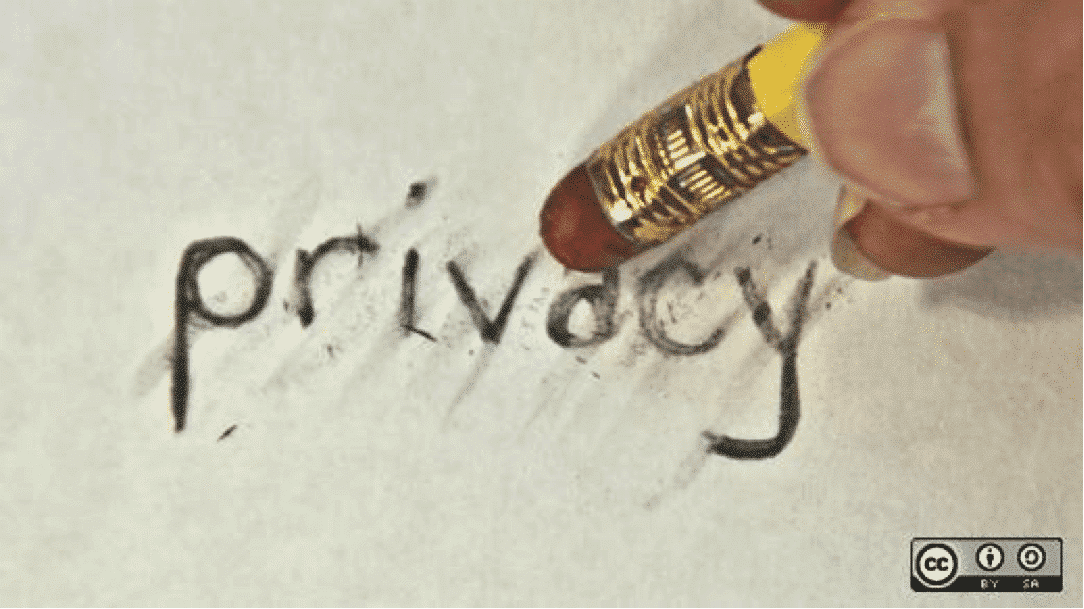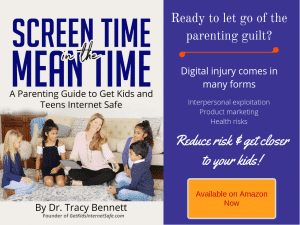
What if you saw your teenage daughter’s photo posted on a stranger’s Facebook page? Perhaps he created his own caption under her photo too, like “I’m so hot!” Perhaps he’s a grown man and has other women’s photos posted as well! I bet you’re thinking that’s too extreme or unlikely. Until recently, I would have agreed with you … until it happened to me. My name is Adrienne Roy-Gasper, and I am a CSUCI intern for Dr. Bennett. I was also guilty of thinking, “it won’t happen to me.” I believed my photos were safe on Facebook, and no one would ever want them.
I WAS WRONG.
Theft of my Photos
Several weeks ago, I received a message from a Facebook friend saying a forty-year-old man had a bunch of photos of me on his Facebook page. She elaborated, “This guy was being really scary and inappropriate with my friend, so I was looking through his Facebook page and saw pictures of you!”
My stomach dropped. I was shaking. My heart was racing. I panicked. When I went to his page, I saw that this man had visited my profile, stole my pictures, and posted them!
I was shocked and scared. I didn’t know this man. I never saw him in person. Never spoke to him. Yet somehow, he found my profile and stole my photos.
Why would he do this? Who is this guy? Why me? How did he find my Facebook profile? What else could he be using these photos for?!
I was freaked out and ready to cry. Maybe my reaction was “overdramatic.” But I was just notified that this man was sexually harassing another girl. This potentially dangerous man, who was a lot older than me, was downloading and publicly posting my personal pictures. How long had he been tracking me? Since I was 17? 20? A year ago? I wasn’t sure, and I didn’t have a way to find out.
How I Got Him to Cooperate
First, I asked for advice from friends and family by posting a Facebook message about the situation. Many of them were frightened for me. They felt it was unsafe and were just as upset as I was. With their suggestions, I ultimately decided to be direct and message this man with a polite request to remove my photos.
I messaged, “I notice that my pictures are on your profile. I did not give you permission to use them. Can you please take them down?”
Now it gets even stranger. Instead of taking the photos down, he replied, “I thought I told you I will when I get back.”
His response was so confusing to me. You thought you told me what? That you stole my pictures? I politely messaged him again, explaining that I’d never spoken with him before.
His response was defensive, “So don’t say rude things to me,” he replied.
At this point, I lost it!
Friends and family came to my rescue and decided to say something to him. I am not one for cyberbullying, but that’s what it came down to. Ten of my friends messaged him with threats like calling the cops or finding him and beating him up. Finally, he took my pictures down.
What do you think?
I kind of worry that this was a mass cyberbully campaign. But was it? Were my champions justified? Whether it was a good reason or not, I ended up feeling guilty but happy that he no longer had my photos on his profile.
I don’t know of many people this has happened to, and I wasn’t sure how to react. After I had time to process what had happened, I discussed the situation with our intern group and agreed to share the story, research solutions, and offer advice.
Facebook’s safety features suggest that you first try to handle situations like this on your own. If it remains a problem, then report it.
- Go to Facebook’s Desktop Help. Go to “Report something” on the side.
- Click what fits your problem the most. For me it was, “Someone is using my photos or my child’s photos without my permission.”
- Then click the link that says, “Get help reporting unauthorized photos.”
- Click “Image privacy rights.”
- Lastly, click what fits your problem the most. For me, I would have chosen “Imposter accounts.”
- Facebook will take you to a form to fill out and, hopefully, they will agree that something needs to be done.
There are three frustrating aspects to this reporting process:
- First, you have to sit and wait for their response while the photo remains active.
- Another frustration is your photos may not get removed from the other person’s account. Facebook may disagree with you and not view it as a problem.
- Finally, Facebook can’t do anything about the fact the guy had downloaded the photos for his personal collection. Yuck!
Despite my initial reservations, I came away from this situation feeling that I went about it reasonably.
If timely trouble-shooting Facebook options are limited, I suggest two further considerations:
- Don’t ever post photos with intimate content. You never really know where they’ll end up!
- Think twice before you post your children’s photos on social media.
- Perhaps you don’t realize it, but profile and cover photos are automatically available for public viewing. Dr. Bennett opts not to have her children in her profile or cover photos as a result.
- Select strict privacy settings on all social media profiles from the beginning rather than waiting until the damage is done.
- There are even worse situations that could occur, such as virtual kidnapping, where a person collects personal information from your social media accounts and uses it to extort money from your loved ones, saying you are in danger and will be harmed or even killed if they do not send money. Or imagine if a child pornographer collects and shares your images with other sickos! Dr. Bennett suggests we re-label “child pornography” to be “images of child sexual assault.” I hadn’t considered that before, but I agree with her because that’s exactly what it is.
- Disable location services for Facebook on your mobile device.
Take it from me! By accepting the Terms of Agreement from each social media app, we are consenting to have our personal data tracked, collected, and used for corporate profit and potentially personal exploitation. We apparently think it’s a reasonable trade for the free fun and real-time communications we have with friends and family. But the truth is, we all now have our virtual identity to protect as well as our nonvirtual identity. And if you’re a parent, posting images and information about your children launch their digital footprints as well as your own.
Before every comment and image I post, I now ask myself some important questions, including, “Do I care if this image is out there on the World Wide Web?”
Take a moment today and talk to your kids about netiquette, digital footprints, and online privacy. Check out Dr. Bennett’s article, “How to Create an Open, Honest Screen Media Family Conversation Like a Boss,” for tips about how to get started.
 Congratulations and thank you to Adrienne Roy Gasper, CSUCI intern, for authoring this awesome GKIS article!
Congratulations and thank you to Adrienne Roy Gasper, CSUCI intern, for authoring this awesome GKIS article!
I’m the mom psychologist who will help you GetKidsInternetSafe.
Onward to More Awesome Parenting,
Tracy S. Bennett, Ph.D.
Mom, Clinical Psychologist, CSUCI Adjunct Faculty
GetKidsInternetSafe.com
Photo Credits
Facebook: The privacy saga continues by Ruth Suehle CC BY-SA 2.0
Wrong neighborhood, motherf*cker! by Kahlil Opeda, CC BY-NC-ND 2.0
Don't worry, we will never spam you.











